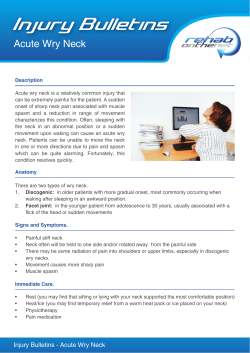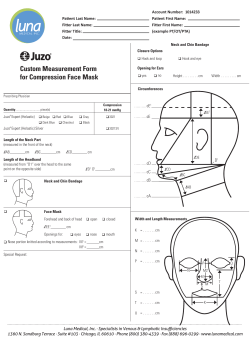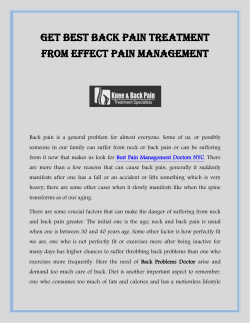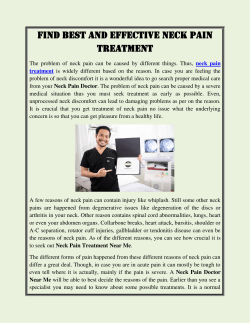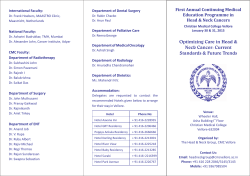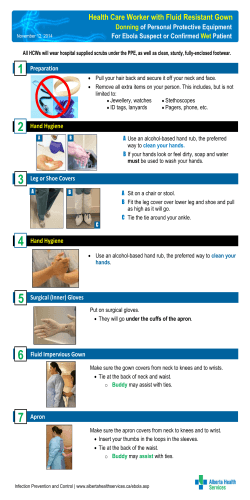
Acute Wry Neck
Acute Wry Neck Have you ever woken up and your neck is “stuck” and you cannot move it in certain directions without sharp pain? Then you have experienced an acute wry neck! Classification of Acute Wry Necks Traumatic Sudden Onset Spontaneous Post Viral Muscular Acquired Hysterical Spasmodic Torticollis O-C1 Block, Atlanto-Axial Fixation Facet joint, cervical disc Disc (DDx facet joint) Children/Adolescents Post trauma - lateral flexion TOWARDS pain Related to childhood torticollis (subtle) Exaggerated deformity, lack of response to treatment Cervical Dystonia – tremour with movement Mode of Onset The most common history is one of the patient waking with a bit of neck stiffness in the morning, but then when they turn their head in the shower or reverse out of the driveway they experience a sudden onset of sharp pain and locking in the neck. They are then unable to move their neck fully without experiencing sharp pain. This is usually due to a “locked” facet joint. It is thought that inflamed tissues get pinched in the joint and the neck “locks” in spasm to prevent further movement. Deformity The most common wry neck presentation is a “locked” facet joint occurring at the C2/3 or C3/4 level. The deformity, if present, will usually present as rotation and side flexion away from the side of pain. Therefore, the opposite movement (rotation and side flexion towards) will result in pain of moderate to severe intensity. Cervical wry necks due to disc derangements tend to occur at the C4/5 and C5/6 levels and the patient presents with a slightly flexed neck posture and pain in the neck radiating down into the upper trapezius or upper back region. Physiotherapy Treatment Physiotherapy involving joint mobilisations or manipulations and muscle relaxation, hot packs, dry needling as well as a tailored home exercise program, can greatly improve the comfort and range of motion of an “acute wry neck”. Generally, if the patient is seen within 12 hours of onset, almost total relief may be attained with only 2 or 3 sessions. Disc lesions can take several weeks to settle, therefore it is important to get an accurate diagnosis. A physiotherapist can determine the cause of the wry neck so appropriate treatment may be implemented immediately. An acute wry neck that is not treated but left to resolve over several weeks can often result in a stiffened segment predisposing the patient to recurrent episodes of the same condition. ©Move Well Pty Ltd
© Copyright 2026
